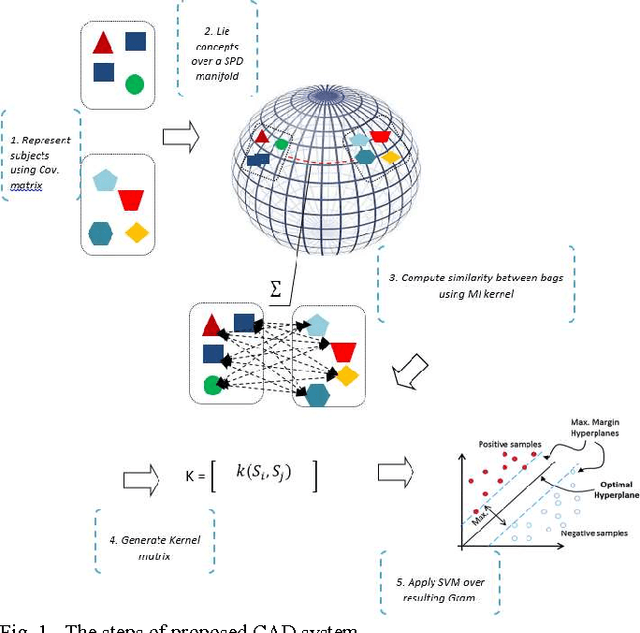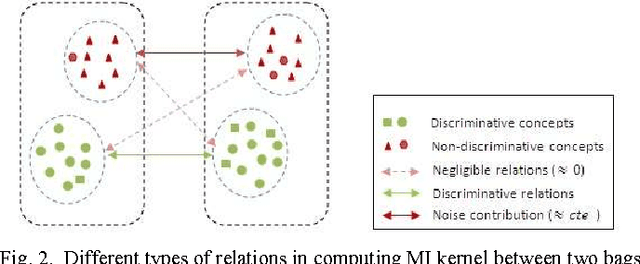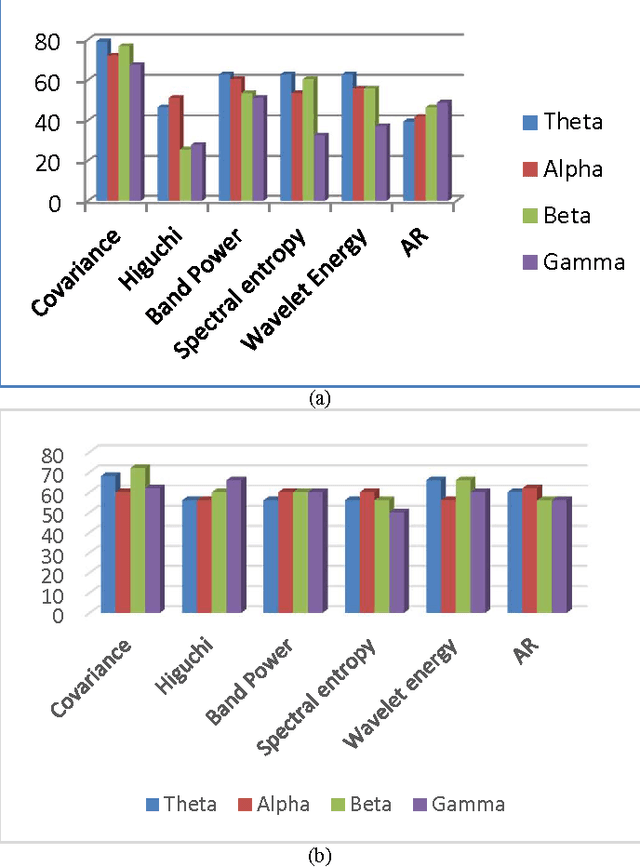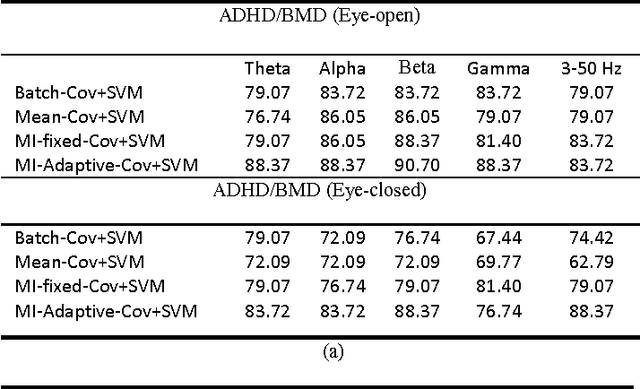EEG Representation Using Multi-instance Framework on The Manifold of Symmetric Positive Definite Matrices for EEG-based Computer Aided Diagnosis
Paper and Code
Feb 08, 2017



The generalization and robustness of an electroencephalogram (EEG)-based computer aided diagnostic system are crucial requirements in actual clinical practice. To reach these goals, we propose a new EEG representation that provides a more realistic view of brain functionality by applying multi-instance (MI) framework to consider the non-stationarity of the EEG signal. The non-stationary characteristic of EEG is considered by describing the signal as a bag of relevant and irrelevant concepts. The concepts are provided by a robust representation of homogenous segments of EEG signal using spatial covariance matrices. Due to the nonlinear geometry of the space of covariance matrices, we determine the boundaries of the homogeneous segments based on adaptive segmentation of the signal in a Riemannian framework. Each subject is described as a bag of covariance matrices of homogenous segments and the bag-level discriminative information is used for classification. To evaluate the performance of the proposed approach, we examine it in attention deficit hyperactivity/bipolar mood disorder detection and depression/normal diagnosis applications. Experimental results confirm the superiority of the proposed approach, which is gained due to the robustness of covariance descriptor, the effectiveness of Riemannian geometry, and the benefits of considering the inherent non-stationary nature of the brain.
 Add to Chrome
Add to Chrome Add to Firefox
Add to Firefox Add to Edge
Add to Edge